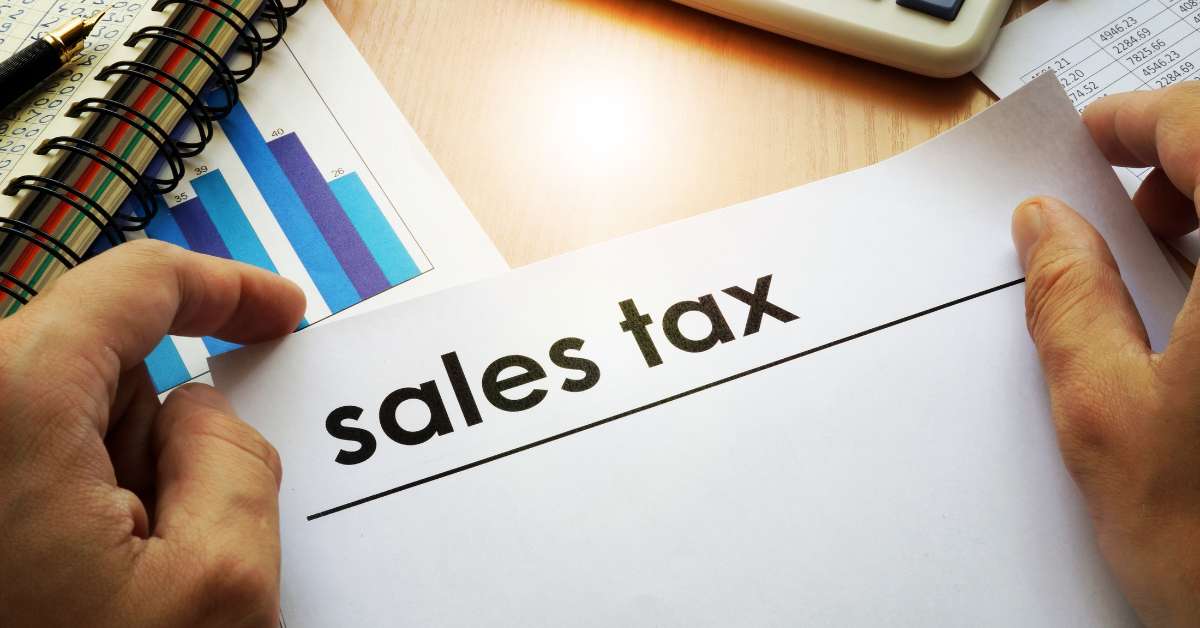Understanding Massachusetts sales tax is essential for business owners, whether you run a brick-and-mortar store or sell online. Staying compliant with state and local tax laws helps you avoid penalties and ensures your business operates smoothly. Massachusetts has a statewide sales tax rate of 6.25%, but certain cities or municipalities might implement additional taxes, so it’s vital to be aware of the local tax requirements in areas where you conduct business.
This guide covers everything you need to know about Massachusetts sales tax, from registration to exemptions and filing requirements. In Massachusetts, certain items like groceries and clothing under a specific price threshold may be exempt from sales tax. Additionally, understanding your filing frequency and keeping up with tax deadlines will help you maintain compliance. Whether you're a new business owner or have been operating for years, staying informed about Massachusetts sales tax will support your business's financial health.

What Is Taxable in Massachusetts?
In Massachusetts, most tangible personal property is subject to sales tax. However, there are several exemptions such as prescription drugs, most groceries, clothing up to a certain amount, and some periodicals and newspapers.
Businesses selling taxable goods or services are required to collect and remit sales tax. It’s important for businesses to be aware of additional use taxes that may apply to out-of-state purchases.
Who Needs to Collect Sales Tax?
Businesses that must collect sales tax in Massachusetts include:
- Retailers with a physical presence in Massachusetts
- Online sellers that meet the state’s economic nexus thresholds
- Some service providers, depending on the type of service
Massachusetts imposes an economic nexus threshold of $100,000 in sales annually. Businesses meeting or exceeding this limit, regardless of physical presence, must register for and collect sales tax. Non-compliance can lead to penalties and back taxes, which is why doola’s Bookkeeping service can help you manage these obligations and avoid legal issues.
How to Register for a Sales Tax Permit in Massachusetts
Registering for a sales tax permit in Massachusetts is straightforward:
- Prepare the necessary documents: EIN, business identification, and other relevant business details.
- Visit the MassTaxConnect online portal.
- Complete the registration process online.
- Receive your Sales Tax License and begin tax collection as required.
Collecting sales tax without a permit is illegal, so ensure registration is complete before engaging in taxable transactions. Assistance for registration can be sought from doola’s bookkeeping team, easing the administrative load on your business.
How to Calculate Sales Tax in Massachusetts
To calculate sales tax accurately, undertake the following steps:
Step 1:
Identify the applicable sales tax rate based on the location of the sale.
Step 2:
Collect the correct tax amount at the point of sale.
Step 3:
Maintain detailed records of all transactions and tax collections.
Massachusetts requires businesses to file sales tax returns either monthly, quarterly, or annually, contingent on the volume of sales. It is crucial to adhere to filing deadlines to mitigate any late fees.
Keep in mind that while Massachusetts has a standard sales tax rate, certain municipalities also impose additional local taxes. These must be incorporated into your calculations.
Common Sales Tax Exemptions in Massachusetts
Several business operations in Massachusetts qualify for sales tax exemptions. These include:
- Purchases intended for resale (necessitating a resale certificate)
- Sales to certain nonprofit organizations
- Certain limited agricultural transactions
Claiming an exemption demands proper documentation, such as exemption certificates. It’s imperative to maintain these records to prevent fines resulting from improper usage.
Remote Seller and Marketplace Sales Tax Rules in Massachusetts
Massachusetts mandates specific sales tax obligations for remote sellers and marketplace facilitators like Amazon, eBay, Shopify, and Etsy.
Businesses surpassing the $100,000 annual sales threshold are required to comply with Massachusetts’ remote sellers’ tax regulations.
What Triggers a Sales Tax Audit
The Massachusetts Department of Revenue might launch an audit for multiple reasons, including missed or erroneous sales tax filings, recurrent late payments, discrepancies between reported and actual sales, and misuse of exemption certificates.
Maintaining meticulous records related to sales, exemptions, and tax payments can substantially diminish audit risks. Additionally, regularly reviewing tax filings for accuracy can help keep your business compliant.
FAQs About Sales Tax in Massachusetts
Here are some frequently asked questions about sales tax in Massachusetts:
Are digital goods taxable in Massachusetts?
Generally, digital products are not taxable, but certain digital subscriptions and goods might be subject to tax. Always check state guidelines.
Do out-of-state businesses need to collect Massachusetts sales tax?
Yes, if they exceed the economic nexus threshold of $100,000 in sales.
What if I overcharge or undercharge on sales tax?
You may need to adjust with reimbursements or additional payments to the state. Precise tax records help avoid such issues.
Are services taxable in Massachusetts?
Most services are not taxed; however, some services like telecommunications and admissions services may be taxable.
Stay Compliant With doola
Navigating sales tax compliance need not be overwhelming. By leveraging the right resources and tools, you can avoid infractions and maintain business operations smoothly.
doola can offer guidance and resources to ensure compliance, empowering businesses to stay on top of tax regulations while also managing their financial and bookkeeping needs effectively.




